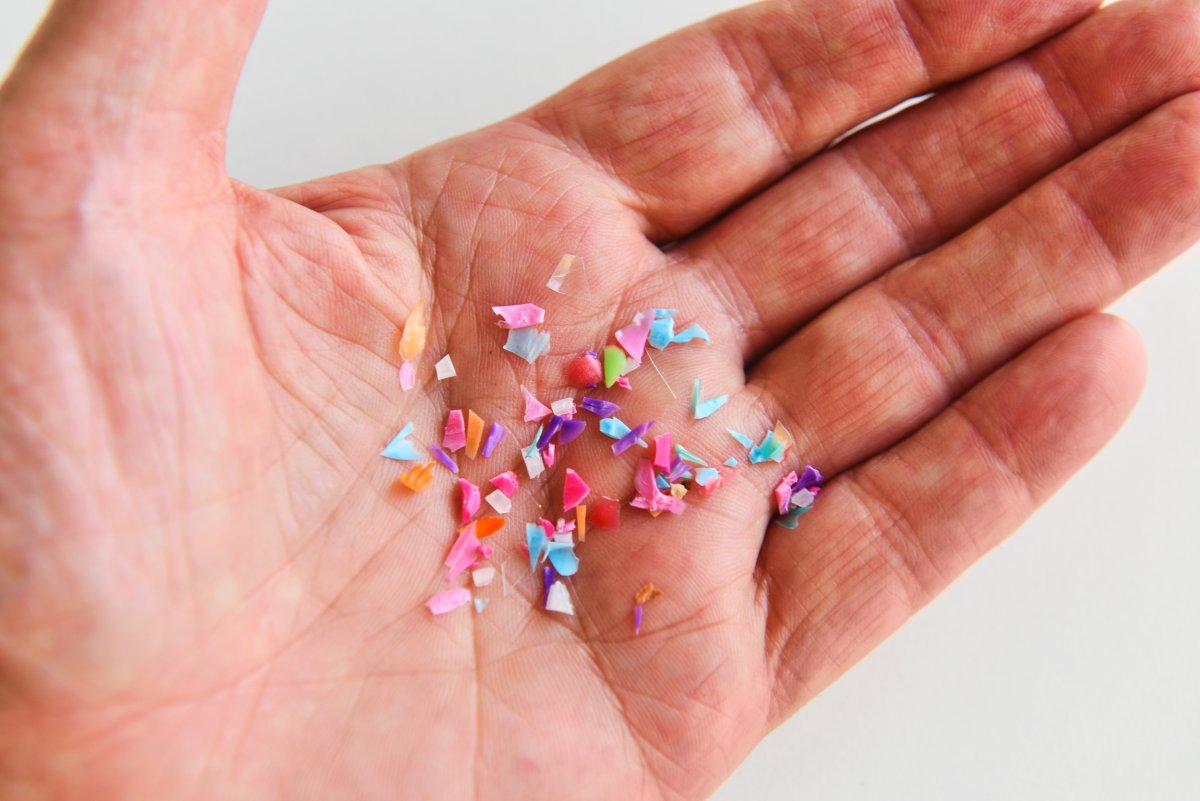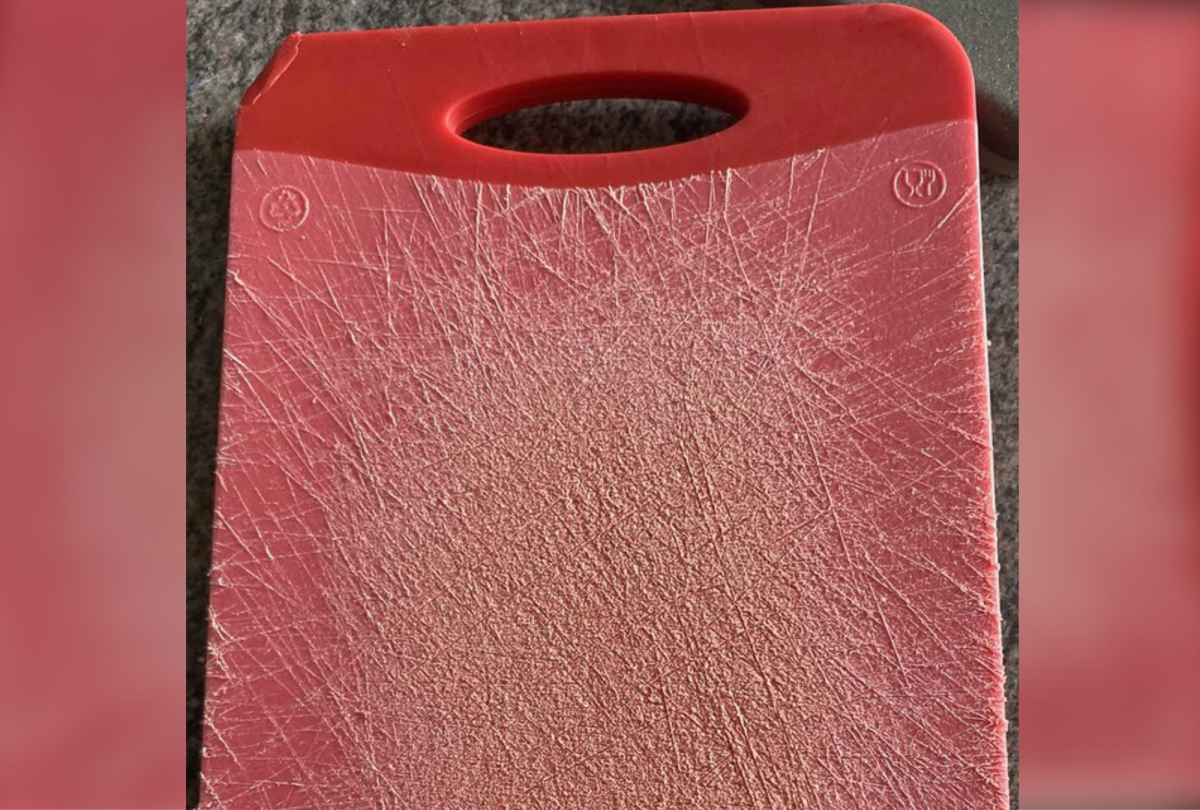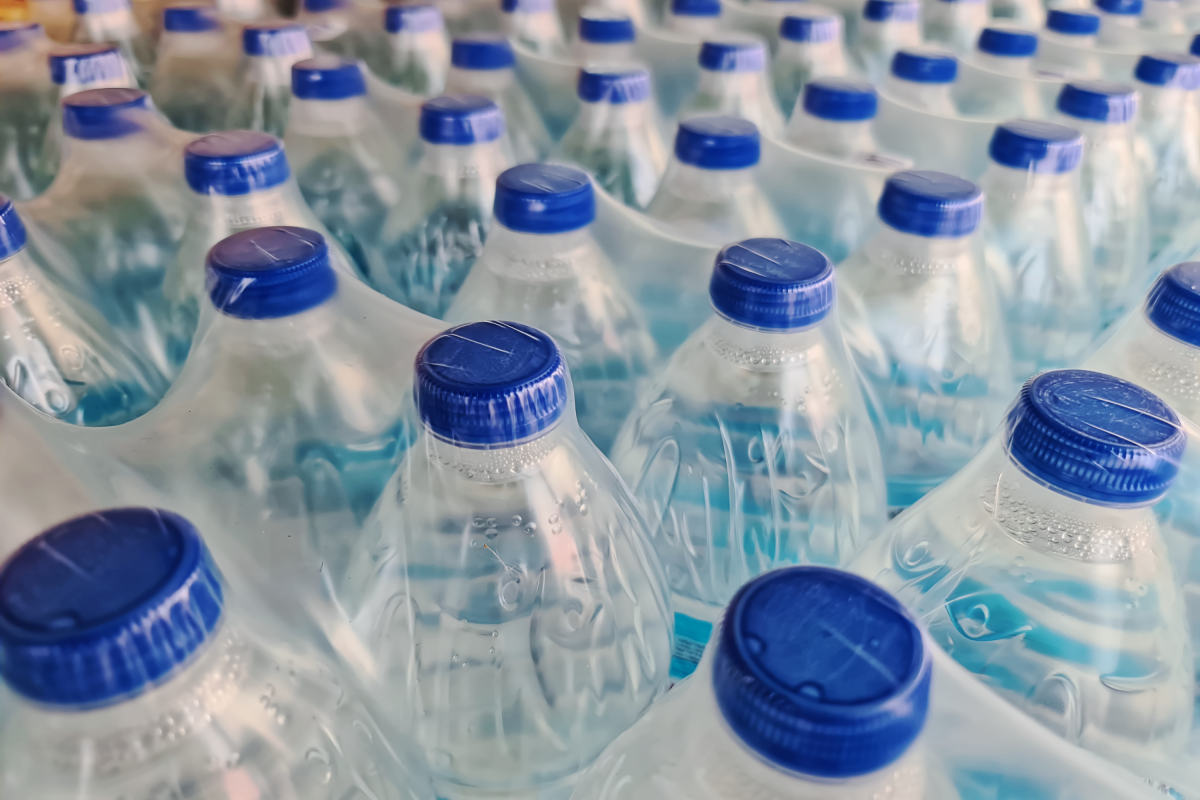Microplastics, tiny plastic fragments less than five millimeters in diameter, have infiltrated nearly every corner of modern life. From the air we breathe to the water we drink and the food we consume, they are everywhere — and nearly impossible to avoid.
Research has increasingly linked these pollutants to serious health risks, including heart disease and lung disorders. While completely avoiding microplastics may be unrealistic, experts shared with Newsweek practical steps you can take to minimize your exposure.
What Are Microplastics?
Microplastics are the plastic particles formed from the breakdown of larger plastic materials. They are surprisingly pervasive, shed from everyday plastics like packaging, synthetic clothing, vehicle tires and even kitchen cutting boards.
"Microplastics are everywhere, including in the food we eat, the water we drink, and the air we breathe," Abby Langer, a registered dietitian, told Newsweek.
Their small size makes them easy to ingest or inhale, raising questions about their impact on the human body. While scientists are still exploring the full extent of these effects, early research has highlighted significant concerns.

For example, microplastics often contain chemical additives such as Bisphenol A (BPA), phthalates, and polyvinyl chloride (PVC). Researchers warn that these substances can disrupt hormones, impair reproduction and increase cancer risks.
Adding to these concerns, a study published earlier this year suggested that microplastics may also elevate the risks of strokes and heart attacks.
Foods With the Most Microplastics
A recent study by PlasticList highlights foods with the highest levels of plastic-related chemicals, such as phthalates. Even foods labeled organic are not necessarily free of microplastics. Common offenders include:
- Bottled Water: Found to have some of the highest levels of microplastic contamination.
- Fast Foods: Processed meals like chicken nuggets and hamburgers from major chains, including McDonald's, Shake Shack and Burger King, were flagged.
- Dairy: Processed dairy, such as mozzarella string cheese, also showed significant contamination.
- Seafood: Products like cold-smoked Atlantic salmon often contain microplastics due to polluted waters.
- Kitchen Staples: Everyday items like rice and salt also tested positive for microplastic contamination.
How to Avoid Microplastics in Food
Some foods are more likely to contain microplastics. Fish can absorb plastics from polluted waters, and processed foods often have higher levels of microplastics due to contact with plastics during manufacturing.
While you can't avoid microplastics entirely, there are simple ways to reduce your exposure.
Reduce Plastic Contact
Avoiding foods that come into contact with plastic is a key strategy. "The most effective way to reduce our exposure is to avoid using plastics as much as possible," Langer advised. Using alternatives like glass, stainless steel, or wooden cutting boards can make a difference.

Avoid Heating Plastic
Never heat food in plastic containers, as heat can cause harmful chemicals to leach into the food they are carrying. "Heating plastic accelerates the release of particles into food," cooking author Adam James Pollock told Newsweek.
Choose Sustainable Food Storage
Switch to reusable glass or stainless steel containers for food storage.
"Plastic packaging, especially black plastics, are particularly harmful due to their chemical makeup," Pollock said.
Filter Your Water
Drinking tap water and using a high-quality water filter can reduce contaminants, including microplastics. Pollock highlighted the importance of clean water, saying, "Filtering tap water is an easy way to avoid some of these particles."

Be Mindful of Food Choices
Eating organic and minimally processed foods can reduce your exposure to microplastics. "Processed foods and fish often have higher concentrations of microplastics," Langer said. Organic foods, particularly those with clear labeling, can help minimize risk.
How to Get Microplastics Out of Your Body
While microplastics are difficult to eliminate completely, supporting your body's natural detox processes can help:
- Stay Hydrated: Drinking plenty of water flushes out toxins.
- Consume Fiber-Rich Foods: High-fiber diets support digestion and waste elimination.
- Exercise Regularly: Physical activity enhances circulation and detoxification.
- Support Liver Health: Include detox-friendly foods like leafy greens and turmeric in your diet.
"It's inevitable to ingest microplastics now," Pollock said, "but reducing contact with plastics can make a meaningful difference."
Looking Ahead
While personal changes can help, both Langer and Pollock agree that industry-wide solutions are essential to addressing the larger problem. Policies banning single-use plastic bags and microbeads have already helped reduce plastic pollution, but broader regulations on plastic production and waste management are necessary, they said.
"People need to be aware of microplastics and how to avoid them," Langer said. "Legislation to reduce plastic production and promote biodegradable alternatives is crucial."
Pollock also emphasized the importance of advocacy: "Supporting laws and voting for candidates who prioritize reducing plastic use are impactful steps anyone can take."




















 English (US) ·
English (US) ·